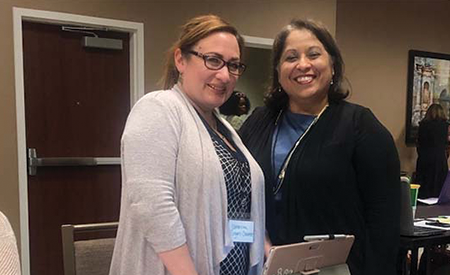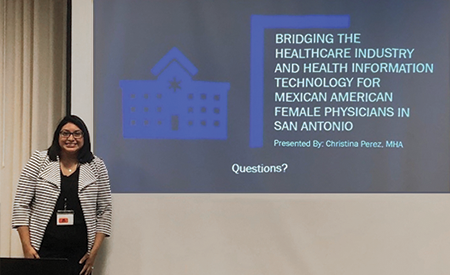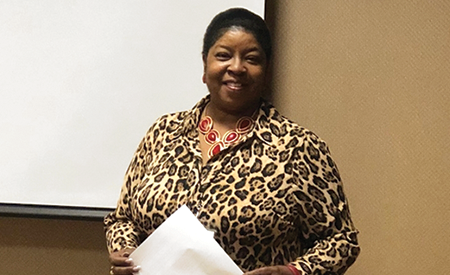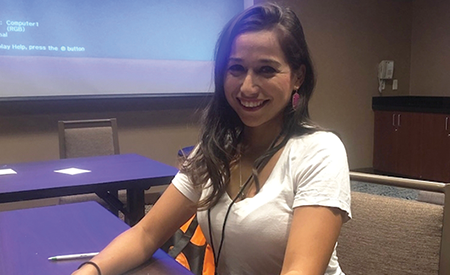Doctoral students present at Research for Women in Education conference
The 44th Annual Research on Women and Education Conference was held on October 26-28, 2018 in San Antonio, Texas. This year's theme, "Reclaiming Our Time: Disrupting Privilege, Racism, and Violence Against Women and Girls," focused on sharing work and building a sense of collegiality and fellowship by scholars, graduates, undergraduates, K-12 educators, students, and community activists. "Our doctoral students did a fantastic job presenting their work and representing the Dreeben School of Education," said Dr. Guzman Foster.
Doctoral student presentations are listed below.
Catherine Rogers-Casarez and Sandra L. Guzman Foster, Ph.D.

Positivity: A Weapon to be Unleashed
Abstract of Presentation: Research that examines the experiences of women whose joyful leader leadership characteristics are seen as weaknesses rather than strengths is needed. The joyful leader is a transformative leader, a leader that will embark on changing the campus culture from one of status quo to one of empowerment, motivation, and gratitude.
Christina Perez

Bridging Healthcare and Health Information Technology (HIT) for Mexican American Female Physicians in SA
Abstract of Presentation: HIT within the healthcare industry will improve the quality of healthcare, prevent medical errors, reduce overuse, decrease paperwork, and capture gaps in care. Usage of HIT within the health care industry has not exceeded 50% nationally, and locally in San Antonio, Whites lead in usage at 60%, Mexican Americans at 22% and Female Mexican Americans at 6% usage. Before we can start to find patients gaps in the care we need to find a solution to bridge the gaps between HIT and healthcare to be able to move forward to give actual quality in care, reduction in cost, and patient satisfaction.
Doleatha J. Thomas

Women’s Empowerment: Examination of Empowerment as a Tool for Social Change for Afro-Mexican Women in the Rural Areas of Guerrero, Mexico
Abstract of Presentation: Research that examines the experiences of marginalized women who lack the resources, education, and training opportunities that could otherwise assist them to rise above their personal and socioeconomic circumstance in underdeveloped nations is needed. Empowered women are self-sufficient decision makers who contribute to the economies in which they live.
July Ann Armijo

What barriers prevent Mexican American women from completing graduate programs?
Abstract of Presentation: The purpose of this research is identifying a few of the barriers that Mexican American women endure that cause them from completing their graduate studies. This paper reviewed the literature to establish a framework of barriers such as stereotyping of both women and the Mexican American culture, socioeconomic status and finally the support systems of family and friends.
